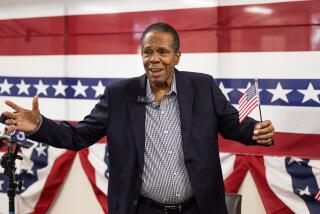NFL player Konrad Reuland died at 29. But his heart saved baseball legend Rod Carew

Former Hall of Fame baseball player Rod Carew received a heart and kidney transplant from former NFL player Konrad Reuland.
- Share via
Mary Reuland leaned over the hospital bed and nestled her head on the chest of Konrad Reuland, the oldest of her three football-playing boys, a 6-foot-6, 270-pound NFL tight end who had been in a coma for almost two weeks.
It was the morning of Dec. 12, in the intensive care unit of the UCLA Medical Center, just hours before doctors declared her 29-year-old son brain-dead from an aneurysm that ruptured behind his left eye on Nov. 30.
“Something in me, I don’t know why, but maybe it’s a mother’s instinct . . . I just laid my right ear on his chest and listened to his heart beating all day, from morning until we had to leave,” Mary said. “I memorized it. And I said, ‘I hope I get to hear this again one day.’ ”
Less than three months later, Mary stood arm-in-arm with her husband, Ralf, and youngest son, 24-year-old Austin, in the backyard of their San Juan Capistrano home, eagerly awaiting the first meeting with the man who received Konrad’s heart and a kidney in a 13-hour operation on Dec. 16.
From a walkway on the side of the house on that sunny Thursday afternoon emerged Rod Carew, the 71-year-old Hall of Fame baseball player, holding the hand of his wife, Rhonda, as he ambled toward the Reulands.
The 18-time All-Star, 1977 American League most valuable player and seven-time batting champion was joined by two of his children, Cheyenne, 29, and Devon, 27.
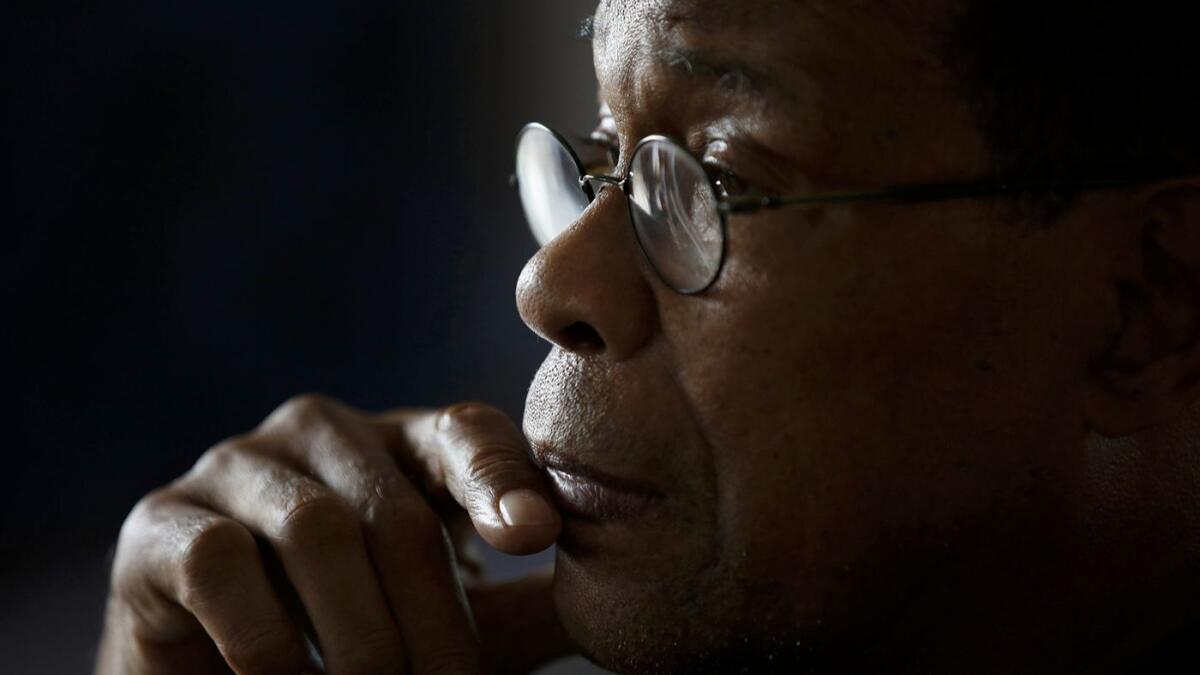
It was comforting in a way to hear that again, knowing that part of Konrad is still here.
— Mary Reuland
Carew, who survived a massive heart attack in 2015, hugged the Reulands. After some small talk, they moved inside, where Rod, sitting on the family room sectional, handed Mary a stethoscope belonging to Ralf Reuland, a doctor.
Mary placed the device on Carew’s chest and listened for about 15 seconds. Her eyes reddened as her head sank into Carew’s shoulder.
“It was comforting in a way to hear that again, knowing that part of Konrad is still here,” Mary said. “I didn’t know until this happened that every heartbeat, like a fingerprint, is unique. It was definitely Konrad’s heart in there.”
Next was Ralf, who listened to the heart for about 20 seconds before pulling Carew’s face toward his in a warm embrace.
“It was strange to have his heart back in this home, beating in somebody else’s chest,” Ralf said. “You just can’t explain the feeling.”
Austin leaned into Carew and seemed surprised by the strength and volume of the sound in the stethoscope.
“Wow,” he said. “Hearing that roaring heartbeat of his … I don’t know, it was surreal.”
No word better describes the last four months for the Carews and Reulands, one family mourning the loss of a son and brother, the other buoyed by a second chance at life, the two now inextricably linked by Konrad’s heart and a shared desire to promote organ donation, heart and vascular health.
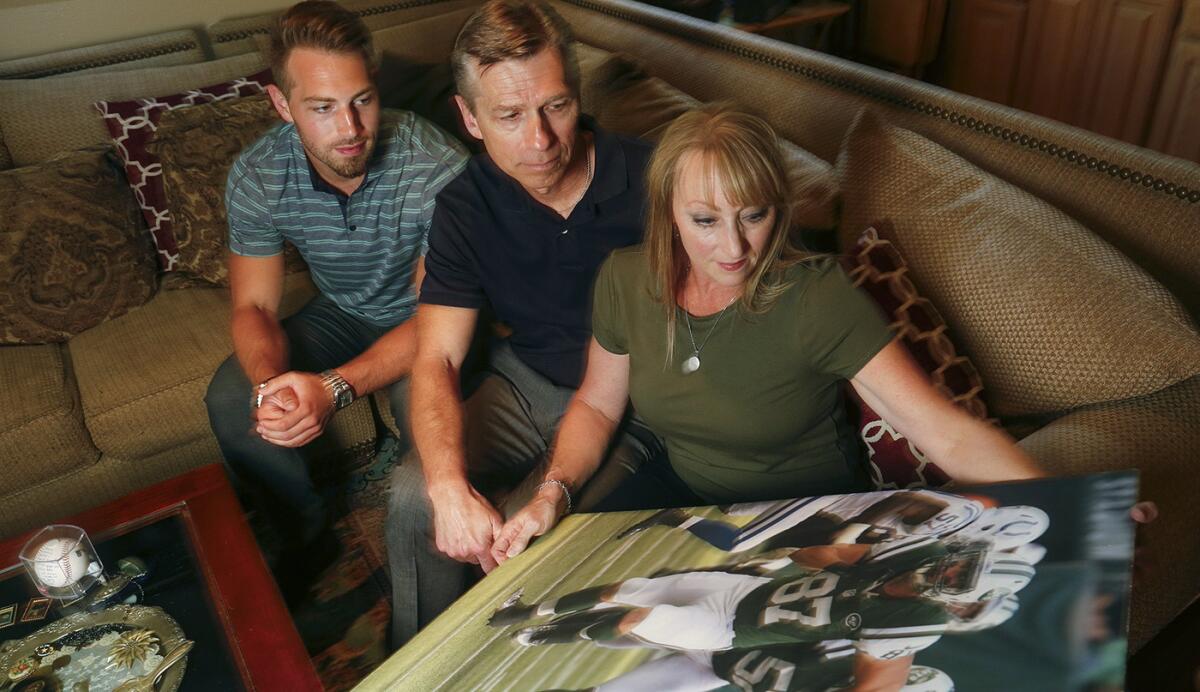
As the mystery surrounding the identities of donor and recipient cleared in January, one coincidence after another led the families to believe they were destined to meet.
Carew wore No. 29 throughout his 19-year career with the Minnesota Twins and Angels, and his heart attack inspired an American Heart Assn. “Heart of 29” campaign to increase awareness about heart disease. All Carew knew of his donor at the time of the transplant was that he was a 29-year-old man.
Konrad and his brother, Warren, now 28, and Cheyenne and Devon Carew were middle-school classmates at St. John’s Episcopal School in Rancho Santa Margarita.
About 15 years ago, a teenage Konrad met Rod Carew at a middle-school basketball game — Warren and Devon were teammates — and spent the rest of the day bragging to his family that he met the Hall of Famer.
According to an official with OneLegacy, the Los Angeles-area chapter of the nationwide organ donor procurement network, this is the first time they’ve heard of anonymously matched organs between families who knew each other. It’s believed to be the first time a heart has gone from one pro athlete to another.
In Carew, the Reulands also have a source of experience, strength and hope. Carew knows the Reulands’ pain. His youngest daughter from his first marriage, Michelle, died in 1996 after a nine-month battle against leukemia. She was 18.
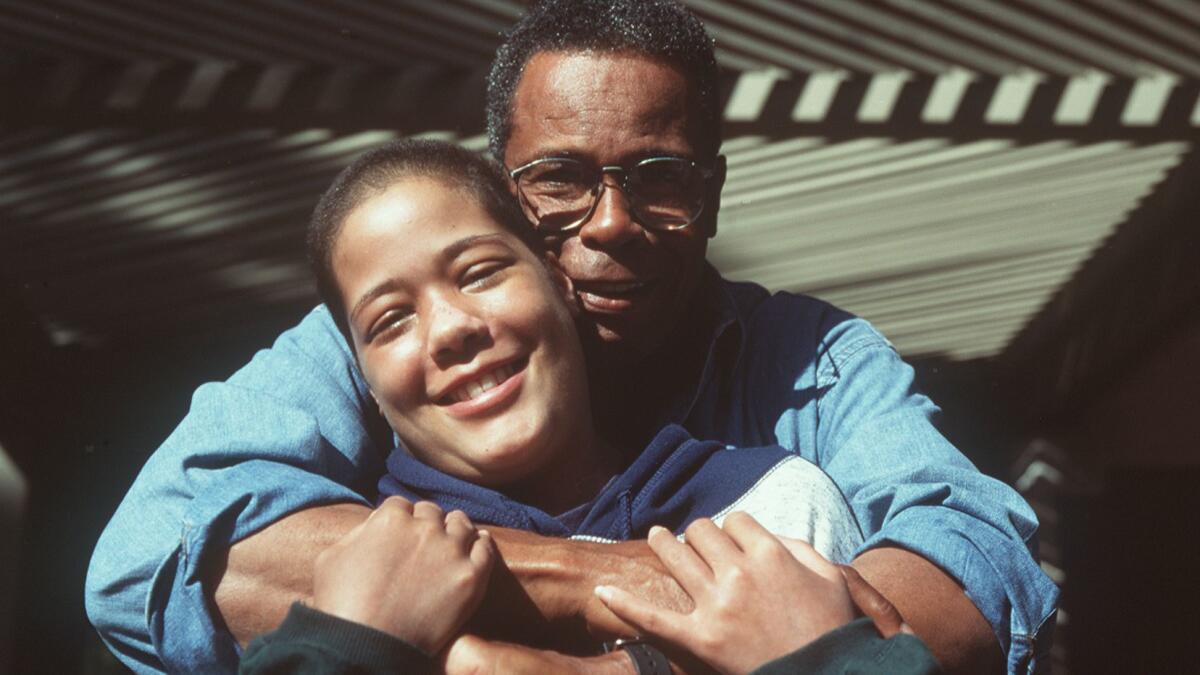
The shy and somewhat reclusive Carew, then the Angels hitting coach, became the face of a campaign to boost the National Marrow Donor Program registry. He has hosted an annual golf tournament to benefit pediatric cancer research in Michelle’s honor for 21 years.
“Once we get to know him better, I will ask him how you get through this, how you deal with such a difficult thing,” Mary Reuland said. “It’s just another piece of the puzzle — you can’t make this stuff up. This is coming from somewhere divine. I think, from above, Konrad did choose who got his organs.”
The widow maker
Rod Carew hit his tee shot on the first hole at Corona’s Cresta Verde Golf Course down the middle of the fairway when his chest began to burn and his hands grew clammy. He drove his cart to the clubhouse, crumpled to the floor and asked a woman to call paramedics.
“The only thing I remember after that was facing the paramedic, and he had a glow around him,” said Carew, seated at the kitchen table of his Coto de Caza home. “He was there with the paddles and says, ‘Let’s go, damn it, we’re losing him!’ Then, I was gone.”
Carew’s heart stopped beating. Twice. When Carew awoke in the emergency room of Riverside Community Hospital, he was told he suffered a heart attack known as “the widow maker,” because few patients survive the ride to the hospital.
“It was a good thing I was at the first hole,” said Carew, who was golfing alone on that morning of Sept. 20, 2015, “because if I was at two or three, they would have found me out there dead.”
It began a 15-month ordeal in which Carew spent 160 days in eight hospitals and had two major surgeries before the transplant.
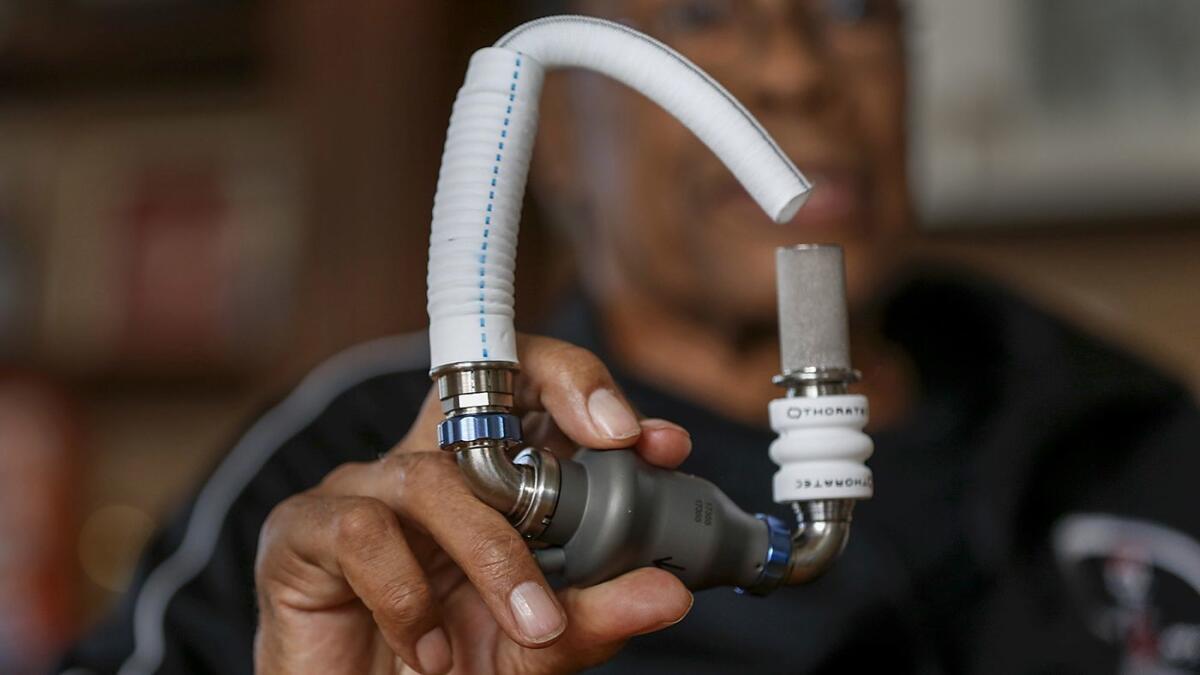
In October 2015, Carew had a six-hour procedure to install a computer-controlled, battery-operated pump known as a left ventricular assist device, or LVAD, which replicated the function of a heart. Carew was so weak he remained hospitalized for seven weeks.
Last July, a CAT scan revealed a subdural hematoma, a collection of blood outside the brain, that required another surgery and a six-week hospital stay, postponing Carew’s eligibility for a transplant. The pressure on the brain impaired his cognitive functions, causing hallucinations.
“I was nuts, wasn’t I?” Carew said, turning to his wife.
“Definitely,” Rhonda replied. “He was going to chop me into little pieces, divorce me … he was going to escape. It was delirium.”
Rhonda, a tireless advocate for her husband, and Carew’s doctors successfully lobbied to have Rod moved higher on the transplant priority list on Dec. 9.
Five days later, Carew got the call.
“I had talked to Kent Tekulve,” Carew said, referring to the former big league reliever who had a heart transplant in 2014, “and he said, ‘Rod, if you think getting that call from the Hall of Fame is the biggest of your life, wait until you get this call.’ It was nerve-wracking. I didn’t know what to expect.”
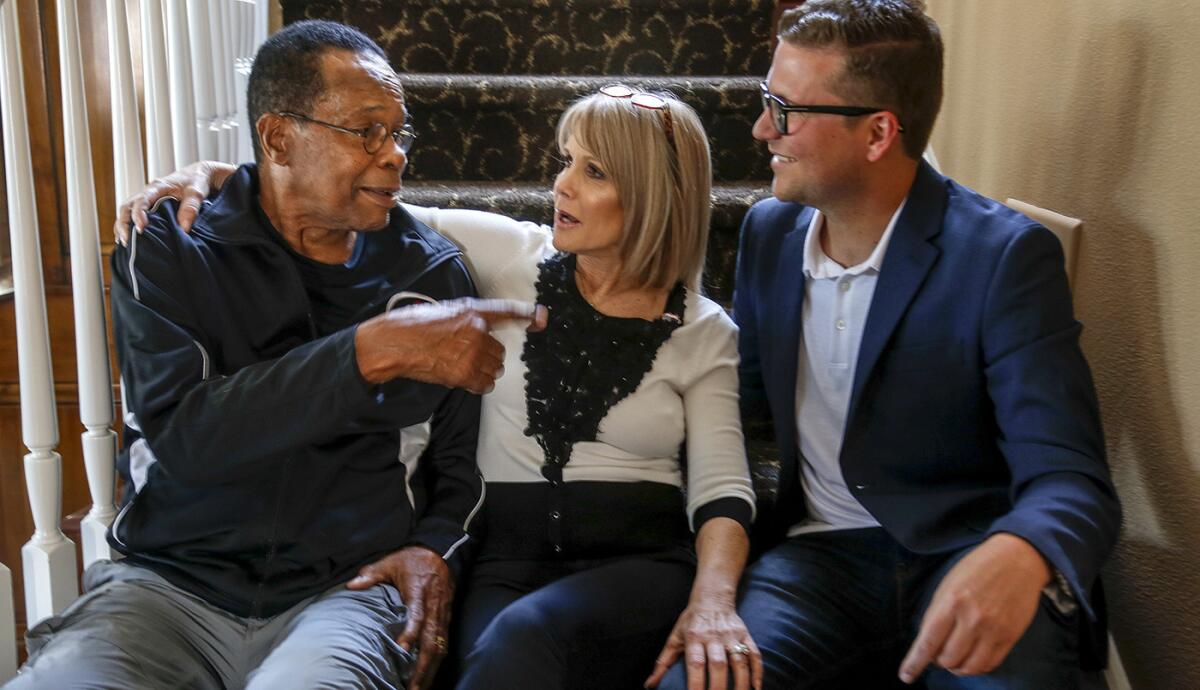
Rhonda was so nervous her hands were trembling.
“I could hardly write down what they were telling me to do,” she said. “It was like, ‘Oh my gosh, this is really happening.’ ”
On the drive to Cedars-Sinai Medical Center in Los Angeles, Rhonda texted friends about the surgery, which was eventually pushed back a day, to Dec. 16. She was confused by several responses.
“I had a few messages from people who said, ‘Do you think he’s receiving Konrad Reuland’s organs?’ ” Rhonda said. “And I’m like, ‘I don’t know, why?’ ”
Living life large
Konrad Reuland had a presence, and not just because of his size. “Everything about him was large,” said Mary Reuland, 55. “He lived large, he ate large, he laughed large. His personality was just large.”
He had what Mary called “an unstoppable energy.” Konrad pulled himself up out of his crib at 5 months. He began walking at 7 months.
“I put bells on his shoes, and people used to think, ‘Oh, that’s so cute,’ and I’d say, ‘That’s not for cute,’ ” Mary said. “I needed to know where this kid was every minute, because he was so curious, so strong-willed, always on the go.”
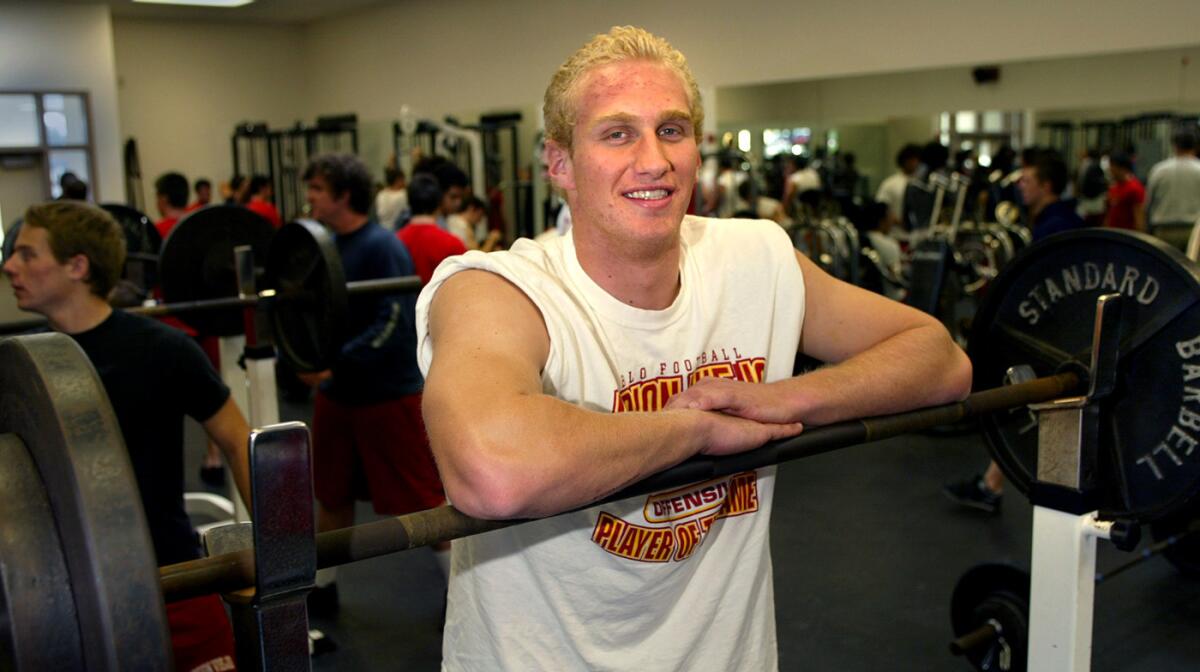
Sports were the perfect outlet. Konrad played soccer, basketball and baseball as a youth and once scored 51 points in a basketball game … in the third grade.
He played basketball as a freshman at Santa Ana Mater Dei High in 2002-03 before transferring to Mission Viejo, where he played football.
Reuland helped the Diablos to a 39-2 record in three seasons and teamed with future NFL quarterback Mark Sanchez, one of his best friends growing up, on the 2004 team that won the Southern Section Division II championship.
After two years (2006-07) at Notre Dame, Konrad transferred to Stanford, where he played two seasons (2009-10) with his brother, Warren. He graduated with a communications degree in 2011.
Undrafted, Reuland carved out a 30-game NFL career in which he caught 12 passes for 90 yards for the New York Jets and Baltimore Ravens in 2012, 2013 and 2015.
Reuland was in camp last summer with the Indianapolis Colts and worked out regularly last fall in an attempt to keep his NFL hopes alive.
“He was in the best shape of his life,” Mary said.
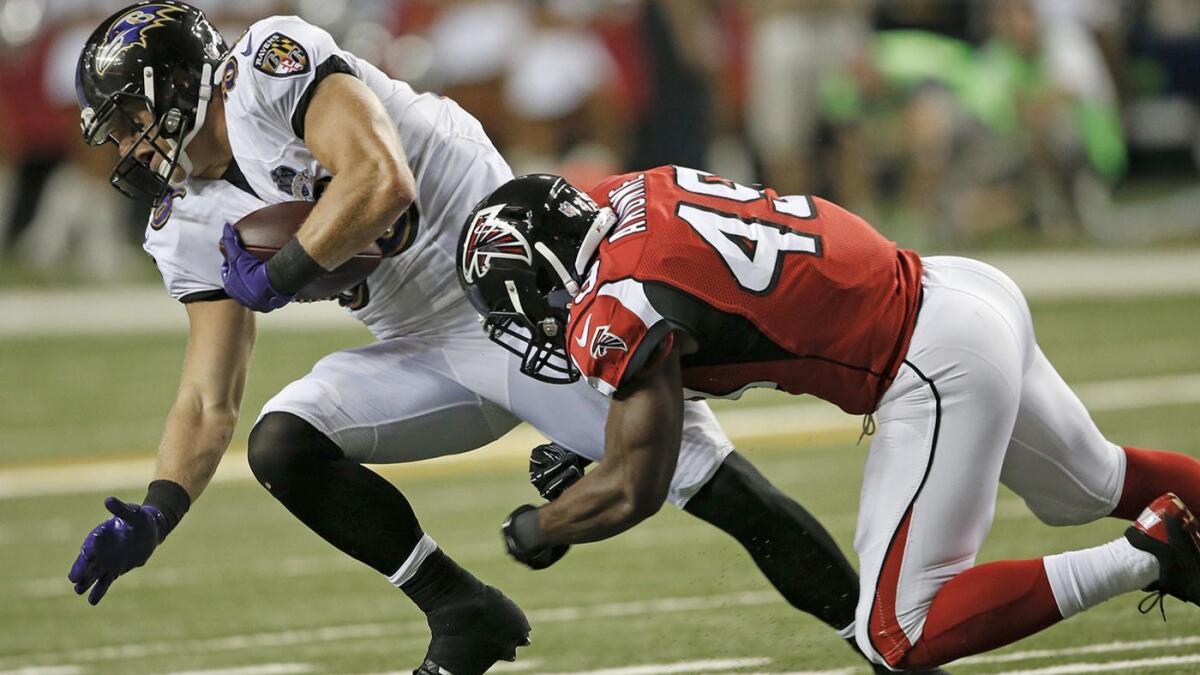
On Nov. 26, the Saturday after Thanksgiving, Konrad was lifting weights in the gym at his Irvine apartment complex.
“He felt a click in his head,” said Ralf Reuland, 56. “After a couple minutes on the treadmill, he had the worst headache he’s ever had, right behind his left eye. He called, and I told him to get to the emergency room.”
By the time Ralf and Mary got to Mission Hospital, the aneurysm was diagnosed. Konrad was transported to UCLA Medical Center the next day. On Nov. 30, the aneurysm burst, prompting a 17-hour brain surgery.
Konrad never regained consciousness. Though his condition was complicated by pneumonia, there were moments over the next 12 days when the pressure in his brain subsided enough to provide hope.
“It was a roller coaster,” Mary said. “At one point, it looks like he’s getting better, and we’re like, ‘OK, it’s Konrad time!’ You don’t rule him out.”
“Then things would start to deteriorate,” Ralf said. “You’re hoping for a miracle, but there was too much swelling in his head. That did him in.”
With the television tuned to a Dec. 12 “Monday Night Football” game between the Ravens and New England, Konrad was declared brain-dead. He remained on a ventilator so his organs could be harvested.
Konrad had made the decision, with input from Mary, to become an organ donor only in April 2016, when he renewed his driver’s license.
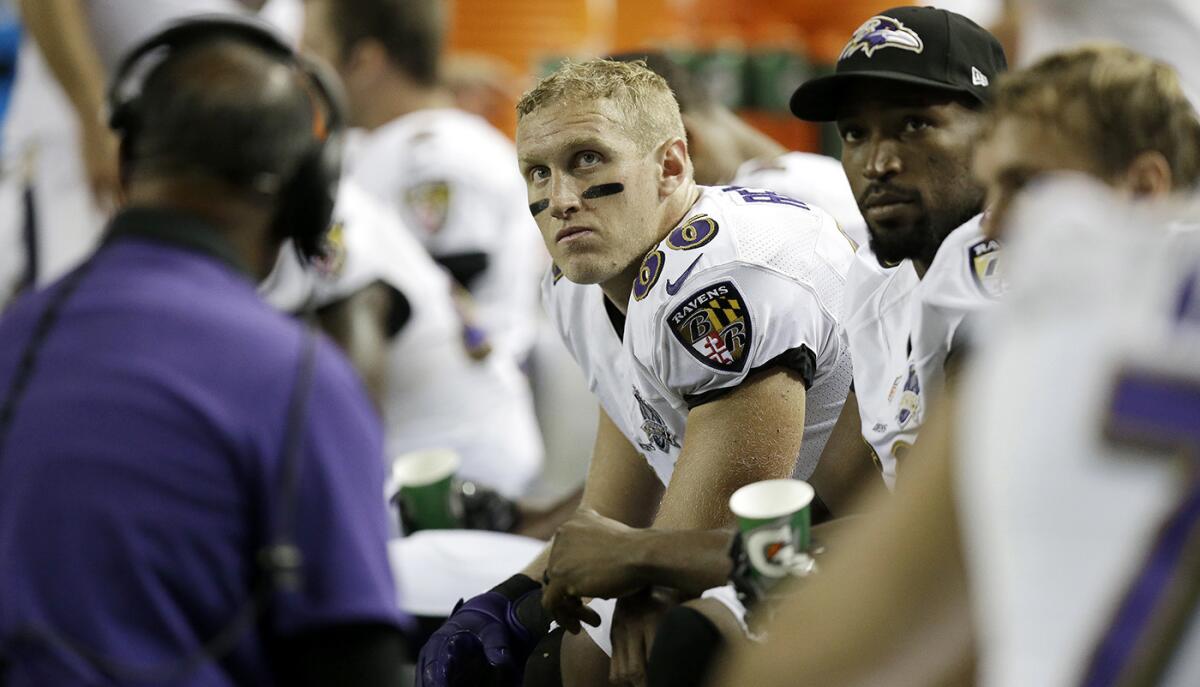
“I told the doctors that whoever gets his heart better deserve it because it’s a good one,” Mary said. “And it’s a big one.”
It’s the heart of a big brother who always let his little brother tag along, whether it was playing sports, video games or going to the movies.
“He never once excluded me or said no, you’re not cool enough,” Austin said. “He was my hero growing up. I wanted to be just like him.”
It’s the heart of a young man who six years ago befriended a 5-year-old neuroblastoma patient from San Diego named Kimi, visiting her periodically, bringing her gifts, letting her paint his nails. The last time Konrad saw her, before Thanksgiving, they sang Taylor Swift songs together on her hospital bed.
“Konrad was the kind of guy who didn’t talk about things that he did,” Ralf said. “He just did them.”
It’s the heart of a mentor who befriended a troubled college defensive back last fall, picking him up at his house five or six mornings a week, lifting weights and running routes with him, paying for sessions with a personal trainer, making sure he ate right.
Max Redfield, a teammate of Austin’s at Mission Viejo, was dismissed from the Notre Dame football team last August after his arrest on misdemeanor charges for possession of marijuana and possession of a handgun without a license. He was given one-year restricted probation.
Konrad advised Redfield to scrap plans to enter the NFL draft and to transfer to another school for one more football season so he could rehabilitate his reputation and restore his value.
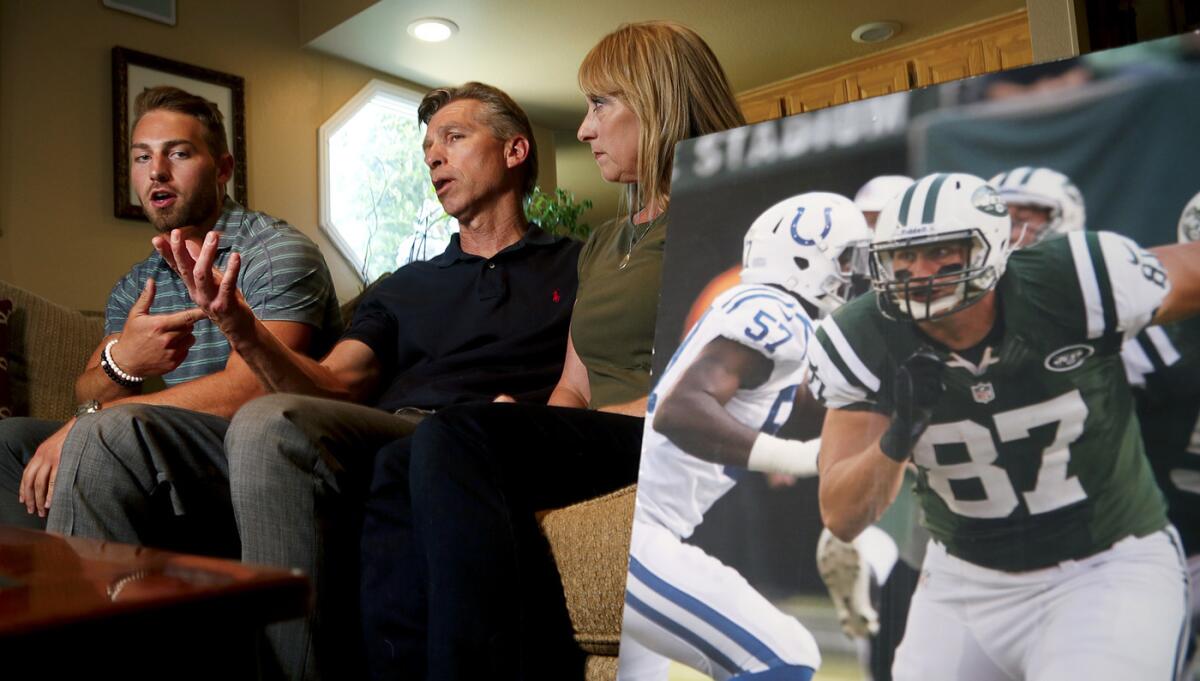
“He was an incredible friend, someone I leaned on,” Redfield said. “It was awesome to have someone believe in me. His legacy will never die.”
Redfield fought back tears as he spoke at Konrad’s Dec. 23 funeral, which drew an overflow crowd at St. Edward Catholic Church in Dana Point. Through her own tears, Mary Reuland’s eyes opened to a possibility she hadn’t considered.
“I don’t know how many people came up to me at the funeral and said, ‘Do you think it’s Rod Carew who got Konrad’s organs?’ ” she said. “I was in my son’s hospital room for two weeks. I had no idea what was going on in the world.”
Connecting the dots
It is recommended that donor families wait at least a year before contacting a recipient to allow the donor family time to process their grief and the recipient time to move past the greatest risk of organ rejection.
But when Mary Reuland did a Google search of Carew a few days after the funeral and saw Rod received a heart from a 29-year-old in Los Angeles, “I almost fell over,” she said. “I started hearing from so many people, ‘Is it Rod Carew?’ Then, I couldn’t let it go. It was like something that festers. I needed to know.”
Rhonda Carew also did a Google search of Konrad when she got to the hospital. When she learned Konrad died on Dec. 12, she thought there was “no way” Rod could have gotten Konrad’s heart on Dec. 16, “because the heart is the organ with the smallest window to get transplanted.”
She did not know at the time that Konrad’s organs were kept alive for four days.
Konrad’s roommate, Devin Bedi, had Cheyenne’s phone number and sent her a text saying, “I think your Dad got Konrad’s heart.” A mutual friend contacted Rhonda in early January and told her the Reulands were “absolutely convinced” that Rod got Konrad’s organs.
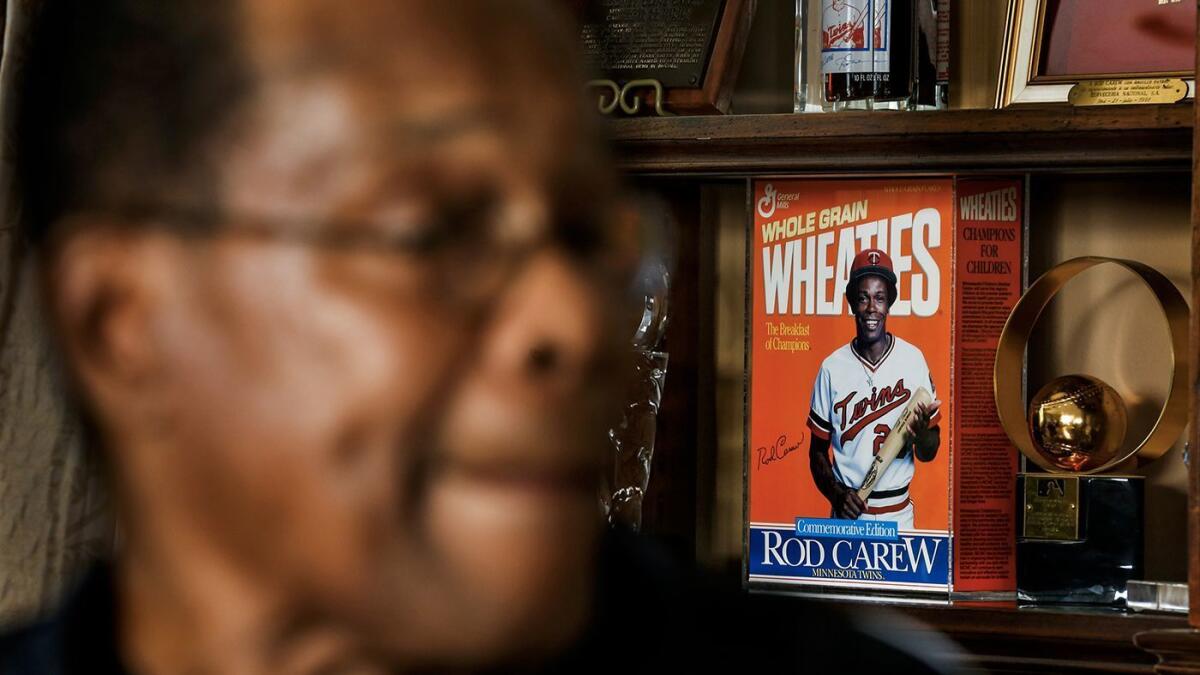
Further investigation revealed that Carew, whose blood type is B-positive, received organs from an O-negative donor. Konrad was O-negative. A hepatitis B immunity in both donor and recipient solidified the match.
“I thought, ‘Uh-oh, they may be right,’ ” Rhonda Carew, 58, said. “But the final confirmation had to come from OneLegacy.”
Mary Reuland made the call to the organ donation company in mid-January.
“I said, ‘Listen, this train has left the station, it’s really hard for me, but we need to know, was it Rod Carew who got my son’s heart and kidney?’ ” Mary said. “She was like, ‘We’ve never heard of anyone calling with the name [of a recipient].’ She paused for the longest time and said, ‘Yes, it is.’ ”
The American Heart Assn. arranged the March 2 meeting of the families, which will be featured on “CBS Sunday Morning.” The Reulands hope it was the first of many gatherings.
“I told them when they came here, and I strongly believe this, that they are now a part of our family,” Mary Reuland said. “My son’s heart is beating in your chest. You are a part of our family, and you will be invited to family functions whether you want to come or not.”
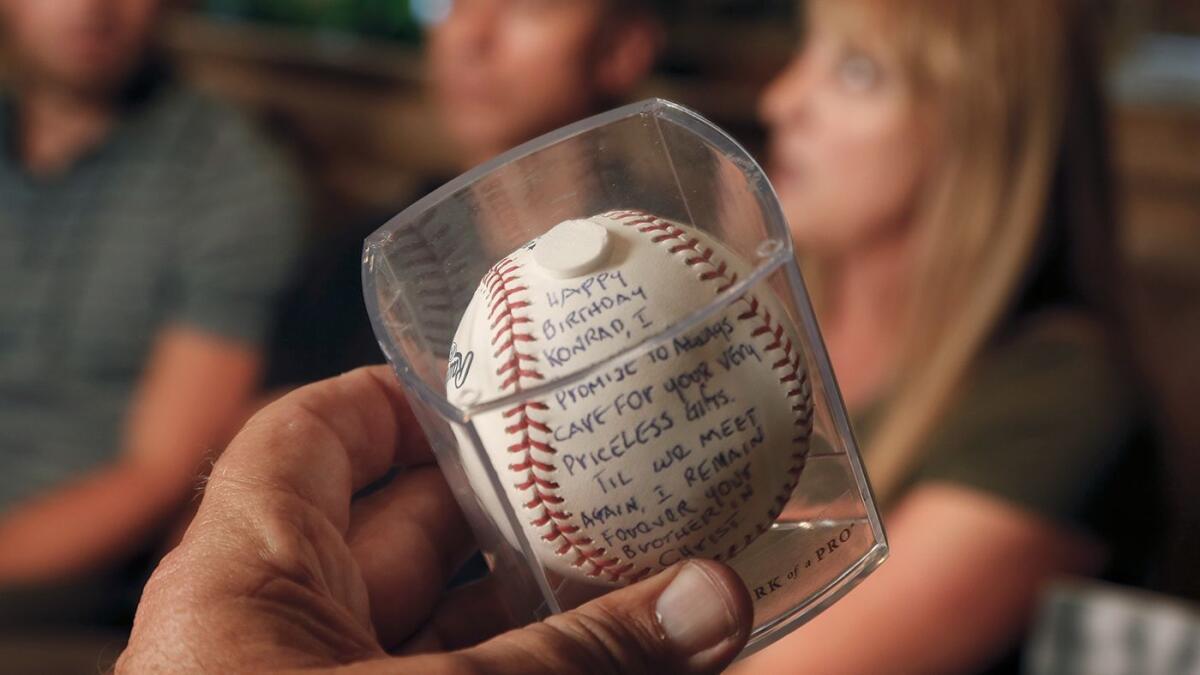
Carew will show his gratitude by continuing his “Heart of 29” campaign work with Major League Baseball and expanding it to the NFL, joining the Reulands in their effort to raise awareness for organ donation and helping to counsel them through their grief.
And, of course, by living a full and active life with a new heart that Mary Reuland described as “a Ferrari.”
According to the International Society of Heart and Lung Transplants, the one-year survival rate for heart-transplant recipients is about 90%, the five-year rate is about 70%, and only 20% survive 20 years or longer.
Carew is gaining strength and balance. His appetite has returned. He’s walking short distances. He’s driving. His weight is good, about 180 pounds. He will soon begin cardiac rehabilitation. Numerous biopsies to check for organ rejection have been clean.
Carew plans to visit Minnesota this summer and attend the Hall of Fame induction ceremony in Cooperstown, N.Y., in late July. He hopes to take Rhonda on trips to Italy, Cuba, Trinidad, Alaska and Maui. He still wants to be submerged in a shark tank “because I’m fascinated by sharks,” he said.
When Mary and Austin Reuland went to Ascension Cemetery in Lake Forest to decorate Konrad’s grave with balloons on April 4, the day Konrad would have turned 30, Rod and Rhonda Carew showed up.
“It was amazing, in terms of strength, how much better he looked just in the month since we last saw him,” Mary Reuland said.
Carew left Konrad a gift, a baseball on which he wrote:
“Happy Birthday, Konrad. I promise to always care for your very priceless gifts. Until we meet again, I remain forever your brother in Christ.”
Signed, “Rod Carew.”
Follow Mike DiGiovanna on Twitter @MikeDiGiovanna
ALSO
He risked everything to save his mom. A college pitcher’s most important save
Former Angels star Rod Carew opens up about massive heart attack, challenging recovery
Dave Roberts ruminates on life, the death of his father and mixing things up in the bullpen
More to Read
Go beyond the scoreboard
Get the latest on L.A.'s teams in the daily Sports Report newsletter.
You may occasionally receive promotional content from the Los Angeles Times.



